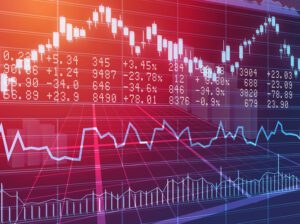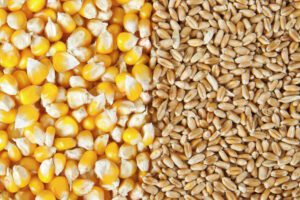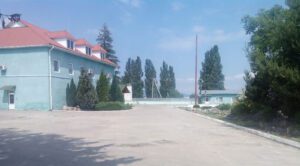
German authorities believe that the Nord Stream and Nord Stream 2 gas pipelines will permanently fail if they are not quickly repaired, Tagesspiegel reported on Wednesday, citing sources in the German government.
“If the gas pipelines are not quickly repaired, a lot of sea water will get into them, and the pipelines will corrode,” the newspaper notes.
After the incident with gas pipelines, the German authorities intend to strengthen control over the movement of ships in their territorial waters. Berlin also intends to pay more attention to the protection of critical infrastructure, coastal areas of the country, terminals under construction for receiving liquefied natural gas and telecommunications cables passing under water.
As reported, on the night of September 26, a leak occurred on one of the lines of the Nord Stream 2 pipeline. It happened in the Danish exclusive economic zone southeast of Bornholm. Also, gas leaks were recorded from both lines of the first Nord Stream northeast of Bornholm.
According to the Tagesspiegel, the German Federal Intelligence Service and state security agencies suspect that sabotage was the cause of the incident.

Quotes of futures for US stock indices change without any dynamics on Wednesday.
Investors fear that the US Federal Reserve’s determination to fight persistently high inflation will continue to push up borrowing costs, hurting the economy and corporate profits, MarketWatch writes.
“Our main view is that further tightening of US financial conditions is unlikely to stop until the economy either enters a clear recession or shows steady progress on inflation,” wrote Goldman Sachs analyst Dominic Wilson.
The yield on ten-year US government bonds rose above 4% per annum during trading on Wednesday, updating the maximum since April 2010, according to The Wall Street Journal. Moreover, the yield of US government bonds shows a record growth rate in four decades amid fears that the Fed is not going to abandon its policy of raising rates to combat the highest inflation in four decades.
Meanwhile, Hurricane Ian is approaching the US state of Florida, which has almost reached the fifth category on the scale of hurricane winds, the Associated Press reported on Wednesday.
According to the US Air Force, “Ian” rapidly gained strength in the Gulf of Mexico and at 7 am local time (14:00 KST) was 105 km from the coastal city of Naples, which is located in Florida.
The state’s losses from the effects of the hurricane could exceed $45 billion, Enki Research expert Chuck Watson predicted. Ian could be one of the eight worst hurricanes in US history, according to the National Oceanic and Atmospheric Administration.
Shares of Tyson Foods Inc. rise in price by 0.5%. The American food manufacturer made changes in the company’s management, including replacing the financial director.
Papers Lyft Inc. decrease by 1.1%. The American taxi ordering service will stop hiring new employees before the end of this year.
Share price of Apple Inc. decreases by 2.3%. The company is abandoning plans to increase production of new iPhone 14 models due to weak demand, Bloomberg writes, citing people familiar with the matter.
The value of the December futures E-mini on the Dow Jones index by 15:43 CSK increased by 0.37% and amounted to 29310 points. Quotation of the December E-mini futures on the S&P 500 rose by this time by 0.23%, to 3669.50 points. Futures on the Nasdaq 100 index for December lost 0.13% and reached 11,319 points.

Oil prices will stabilize during trading on Wednesday afternoon after falling in the morning.
The cost of November futures for Brent crude on the London ICE Futures exchange by 14:50 UTC on Wednesday is $86.37 per barrel, which is $0.1 (0.12%) higher than the closing price of the previous session.
The price of futures for WTI oil for November in electronic trading on the New York Mercantile Exchange (NYMEX) rose by this time by $0.23 (0.29%), to $78.73 per barrel.
The rise of the US dollar, which resumed on Wednesday, has a negative impact on the market. The appreciation of the dollar against the backdrop of prospects for tightening US monetary policy leads to the fact that the purchase of commodities becomes less attractive for holders of other currencies.
Investors are also concerned about a potential decline in oil demand due to the risks of a global economic recession amid rising interest rates by the world’s central banks. Analysts at Goldman Sachs downgraded their forecast for oil prices for next year to $108 per barrel from $125 per barrel earlier.
Meanwhile, traders remain concerned about the prospects for supply, which is associated with the suspension of production in the Gulf of Mexico due to the approaching Hurricane Ian. The US National Hurricane Center expects Ian to reach Florida as early as Wednesday.
Due to the approach of the hurricane, Chevron and BP announced the suspension of four production platforms in the Gulf of Mexico.
Market attention is gradually shifting to the upcoming meeting of the OPEC + alliance, which will be held on October 5. Analysts believe that the alliance may decide to actively cut oil production due to falling prices.

The next four ships with 115 thousand tons of agricultural products left the ports of Chornomorsk and Pivdenny on Wednesday for Africa, Asia and Europe, the Ministry of Infrastructure of Ukraine reports.
“Four ships left the berths, including Magnum Fortune, which transports 51 thousand tons of Ukrainian wheat for Bangladesh, and Almeray with 32.4 thousand tons of corn for Libya,” the agency noted on Facebook.
In total, after the release of the first vessel with Ukrainian food, 5.4 million tons of agricultural products were exported, and the total number of vessels leaving Ukrainian ports for the countries of Asia, Europe and Africa reached 235.
The agency indicated that the day before, the most capacious vessel of the time of the initiative, the Capesize Maran Excellence, with 115,000 tons of grain, left the port of Pivdenny.
As reported, in Istanbul on July 22, with the participation of the UN, Ukraine, Turkey and Russia, two documents were signed on the creation of a corridor for the export of grain from three Ukrainian ports – Chornomorsk, Odessa and Pivdenny.

Equity markets in Western Europe fell sharply during trading on Wednesday, following the dynamics of the main stock indexes in the Asia-Pacific region.
The composite index of the largest companies in the Stoxx Europe 600 region fell by 1.69% by 12:30 pm to 381.66 points.
The British stock index FTSE 100 is down 1.57%, the German DAX – 1.6%, the French CAC 40 – 1.24%. Italian FTSE MIB loses 1.56%, Spanish IBEX 35 – 1.78%.
Asian stocks also fell heavily, with Hong Kong’s Hang Seng hitting a 13-year low.
Investors are still worried about forecasts of a global economic recession amid persistently high inflation and aggressive measures by the largest central banks to contain it.
The European Central Bank (ECB) will raise interest rates at the next few meetings, the head of the regulator, Christine Lagarde, said at an event in Frankfurt on Wednesday.
“We will do what we must, which is to keep raising interest rates at the next meetings,” Lagarde said. “Our main goal is price stability, and we must achieve it. If we do not achieve, then the economy will suffer even more.”
In early September, the ECB raised all three key interest rates by 75 basis points (bp) for the second time in a row. The base interest rate on loans was raised to 1.25% per annum, the rate on deposits – up to 0.75%, the rate on margin loans – up to 1.5%. Markets expect the European Central Bank to raise rates by another 75 bp in October.
Meanwhile, the leading indicator of consumer confidence in Germany, calculated by the research company GfK, updated a historical low in October. The value of the indicator fell to minus 42.5 points compared to minus 36.8 points in September. A record low is recorded following the results of the fourth month in a row.
Analysts on average predicted a less significant drop – to minus 39 points, according to Trading Economics.
The consumer confidence index in France in September fell to 79 points compared to 82 points a month earlier, data from the national statistical office Insee showed. As a result, its value coincided with the historical minimum, which was recorded in May 2013 and in July this year.
Experts on average expected a reduction of only 80 points.
German industrial group Thyssenkrupp AG plunged 12.1% to become one of the top three Stoxx 600 stocks. JPMorgan analysts affirmed the company’s underweight rating.
The shares of Norwegian fish companies SalMar ASA (-27.5%) and Mowi ASA (-19.2%) also fell most significantly.
Dutch supermarket operator Royal Ahold Delhaize NV is down 0.6%. The company’s Board of Directors intends to propose to shareholders that they reappoint CEO and Chairman of the Board Frans Müller for another term.
The capitalization of the British fashion house Burberry Group Plc is growing by 3.4%. The company’s chief creative officer, Riccardo Tisci, will retire at the end of September. He will be replaced by Daniel Lee.
Asia-Pacific region, DYNAMICS, European stock markets, Stock indices

The State Oschadbank (Kyiv) put forward through the OpenMarket platform (SE “SETAM”) the right to conclude a financial leasing agreement for an enterprise in the village of Fanchikovo (Transcarpathian region), specializing in the canning of vegetables, fruits, and the production of canned fruits and vegetables.
According to a press release from the financial institution, the auction for the sale of the cannery owned by Oschadbank will be held on October 19 with a starting price of UAH 1.28 million.
According to the bank, Lot No. 517457 includes the right to conclude a financial leasing agreement for non-residential real estate with a total area of 14.77 thousand square meters. m and a lease agreement with the purchase of a land plot under the enterprise with a total area of 1.63 hectares.
It is specified that the winner of the auction receives the right to conclude a financial leasing agreement for the enterprise, the sale price of which (redemption value) is UAH 12.14 million. The buyer also needs to pay this amount in equal installments within 84 months from the date of the conclusion of the financial leasing agreement for the plant and the lease agreement for the land plot under it.
Oschadbank was founded in 1991. Its sole owner is the state.
According to the statistics of the National Bank, as of September 1, 2021, in terms of total assets, Oschadbank ranks second in the rating (UAH 254.54 billion) among 72 banks operating in the country.